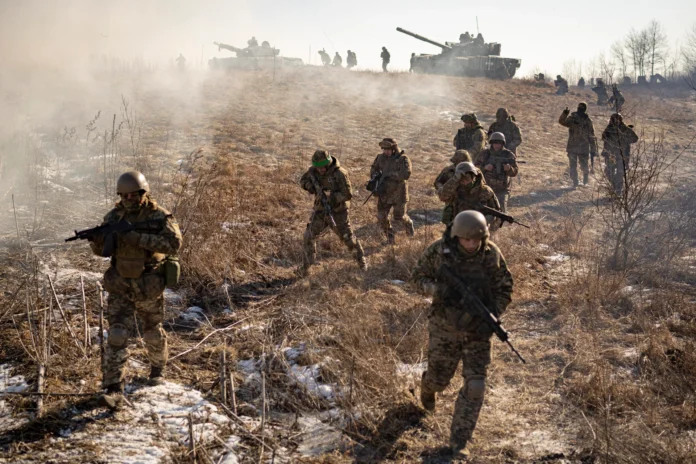Authors: Liana Fix and Michael Kimmage
Affiliation: Körber Foundation; Catholic University of America and Former Policy Planning Staff at the US State Department (2014-2016 Russia/Ukraine Portfolio)
Organization/Publisher: Foreign Affairs
Date/Place: April 20, 2022/USA
Type of Literature: Analysis
Word Count: 1500
Link: https://www.foreignaffairs.com/articles/russian-federation/2022-04-20/what-if-war-ukraine-doesnt-end
Keywords: Russia, Ukraine, War, Conflict
Brief:
The authors report that after several weeks of the Russia-Ukraine war have been completed, neither side appears to be close to achieving their objectives any time soon. So the main question becomes whose side time is on if the war does not end soon? The authors claim that a protracted conflict will benefit Russia, as it will devastate Ukraine, reduce support for Ukraine, cause a global economic and energy crisis, and increase the risks of spillover into Europe. They contend that continuous military support for Ukraine, sanctions against Russia’s energy sector in particular, and continuous global imaging to maintain support for Ukraine are required to achieve the desired results for the West. Putin has several reasons not to end the war soon: Russia is nowhere near achieving its objectives; an abrupt decision to end the war would be politically damaging for Putin; a long war will put pressure on NATO, especially if it results in waning support for Ukraine in the West; and, finally, if Trump or others like him win upcoming elections in the West, they may strike a deal with Putin at the expense of NATO. Meanwhile, on the Ukrainian side, a quick end to the war on Russian terms is not an option; a prolonged war will allow it to strike a better peace deal than a quick and complete surrender on Russian terms. But as the war in Ukraine continues, it will pose serious security, economic, and migration challenges for Europe, as well as for the rest of the world. Therefore, rather than turning the Ukraine war into a Hollywood-style story, the West should devise a long-term strategy to persuade the Western and global public to consistently support Ukraine. The outcome of this war will set the precedent for the future liberal democratic order. The West’s foreign policy agenda should prioritize unwavering support for Ukraine.
By: Hammad Siddique, CIGA Research Associate




